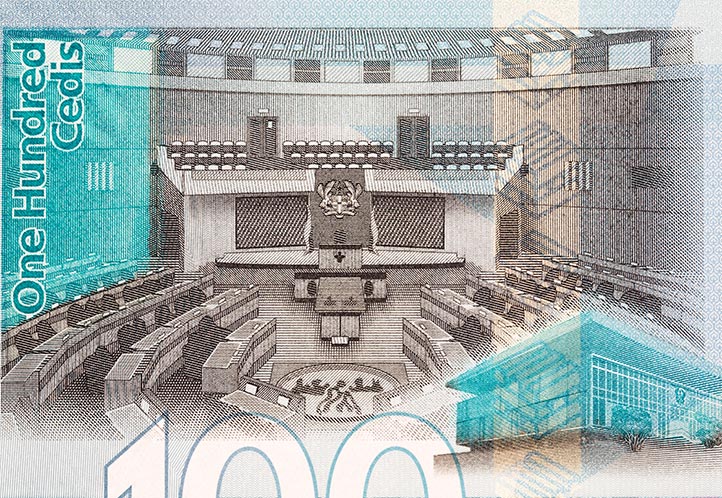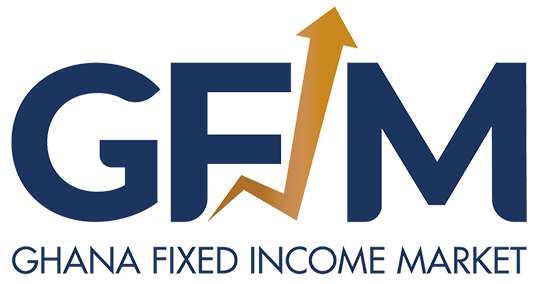GFIM is a market to facilitate the secondary trading of all fixed income securities and other securities to be determined from time to time. The market has been established by key stakeholders in the financial market led by the Ghana Stock Exchange (GSE), Bank of Ghana (BoG), the Ministry of Finance, Central Securities Depository Ghana Ltd (CSD), Ghana Association of Bankers, Financial Market Association (ACI Ghana) and Licensed Dealing Members (LDMs) of the Ghana Stock Exchange.
Frequently Asked Questions
What are Debt Capital Instrument?
Individuals, businesses, and governments use common types of debt instruments, such as loans, bonds and debentures, to raise capital or generate investment income. Debt instruments essentially act as an IOU between the issuer and the buyer.
Which type of debt capital instrument does GFIM allow?
The following securities or instruments are allowed on GFIM:
- Government of Ghana treasury bills, notes, and bonds; and
- BoG money market instruments.
- Money market instruments, notes, and bonds of state-owned enterprises and other institutions controlled by the Government of Ghana or in which the Government of Ghana has an interest;
corporate notes and bonds; - Local government bonds (i.e., metropolitan, municipal and district bonds);
- Supra-national bonds;
- Repurchase agreements (repos);
- derivatives; and
- other fixed income or money market securities.
Who trades on GFIM?
- Trading on the GFIM shall be limited to only authorized dealing entities, herein referred to as Members.
- An entity shall not deal in, trade in, or conduct a transaction in securities admitted to the GFIM unless that entity has been admitted as a Member of GFIM.The following are the entities that are eligible to be admitted as Members:a. an entity licensed by the SEC to deal in securities and authorized by the BoG as a Primary Dealer (PD) or Bond Market Specialist (BMS); or
b. a non-PD bank licensed by the SEC to deal in securities; or
c. an entity licensed by the SEC as a broker-dealer.Any other entity shall trade through one of the above-mentioned Members. - BoG, for monetary policy purposes, shall be permitted to deal in Government of Ghana or BoG securities admitted on the GFIM.
- Non-resident foreign entities shall not be eligible to be admitted as members of GFIM.
A PD institution, BMS, non-PD institution or a Broker-Dealer shall apply to become a member of GFIM in the form containing the particulars specified in Appendix 2 ( GFIM Rules) and pay the relevant fees.
What are the GFIM trading hours?
Trading hours for the GFIM shall be from 0900 hours GMT to 1600 hours GMT each business day. There shall be no dealing outside trading hours.
What is a Repurchase Agreement?
A repo is a sale of a quantity of an asset and a simultaneous agreement to repurchase the same quantity of an equivalent asset at a future date or on demand for the original value plus a return on the use of cash.
Eligible Counterparties
- BOG
- Banks and SDIs
- Securities Dealers
- Corporates with knowledge and sophistication to appreciate the risk of repo market
- High-Net-Worth-Individuals with knowledge and sophistication to appreciate the risk of repo market
Eligible Securities
Treasury bills and notes issued by the Government of Ghana
- Bonds issued or guaranteed by the Government of Ghana
- Bank of Ghana bills
- Eurobonds issued by the Government of Ghana
- Corporate Bonds listed on the Ghana Fixed Income Market
Where can I find bonds issued by the Government of Ghana?
Bonds issued by Government of Ghana (GoG) and listed on the GFIM can be found on GFIM website.
Where can I download GFIM data and statistics?
Market Data: Daily Trading Reports on GFIM website.
Market Data: Monthly Reports on GFIM website.
What is a Benchmark Security on the GFIM?
A benchmark security is a security used as a “benchmark” to assess the performance of all the other securities.
What are the admission requirements on GFIM?
- A security to be admitted to the GFIM shall have an issued nominal value of not less than five hundred thousand Ghana cedis (GH¢500,000).
- A security to be admitted to the GFIM shall have a minimum of 5 holders.
- A security to be admitted to the GFIM, other than Government of Ghana and BoG securities shall be created and issued pursuant to a Trust Deed and the prospectus shall be approved by the SEC unless exempted by law or by the SEC.
- The issuer and its Trustees shall ensure that the book closure dates, to make coupon payments shall not be more than 3 business days.
- A security to be admitted to the GFIM shall be registered in the Central Securities Depository (CSD).
- The issuer of a security, other than the Government of Ghana or BoG, shall have published or filed accounts in accordance with the Companies Act, for the full financial year immediately preceding the date of its application for admission or a plan that details the prospects and cash flows of the issuer.
- An issuer of securities on the GFIM, other than Government of Ghana or BoG shall have made reasonable pre-tax profits during the three financial years immediately preceding the date of its application for admission; or have a plan that details the prospects and future cash flows of the issuer as well as the ability to fully service its financial obligations as they fall due.
- For the purposes of this rule, pre-tax profit shall not include non-recurring and extraordinary income, nor shall it be reduced by non-recurring or extraordinary loss.
- In determining pre-tax profit for admission, the GFIM shall take into consideration a positive pre-tax profit in aggregate when the results of the three years are added.
- An issuer who is in default of its coupon and principal obligations shall not have new securities admitted until such default has been resolved or unless the new issue is to restructure the defaulting issue.
What is a Commercial Paper?
Commercial Paper (CP) means an unconditional promise by an Issuer to pay to the order of an investor, a certain sum at a future date.
What is the maturity range of a Commercial Paper?
ACP shall be issued for tenors of a minimum of 15 days and a maximum of 270 days.
Who are the typical issuers and buyers of Commercial Paper?
Issuer means an entity that issues, has issued or is going to issue a Commercial Paper. Other corporations, financial institutions, and wealthy individuals are usually buyers of Commercial Paper.
How is Commercial Paper issued?
An Issuer, through an Issuing House, shall submit appropriate documents at the time of application to the SEC for examination and approval.
What is the minimum size and denomination of Commercial Paper?
The minimum size of issue of a Commercial Paper shall be GHS 1million.
The Commercial Paper shall be issued in minimum denominations of GHS 10,000.
What are the benefits of issuing a Commercial Paper to the Issuer?
Lower Cost of Borrowing – A Commercial Paper typically offers a lower interest rate compared to other forms of short-term financing.
Diversification of funding sources-Issuing Commercial Paper can enhance a company’s financial flexibility by diversifying its sources of funding and reducing reliance on traditional bank loans.
Quick access to funds- Commercial Paper can be issued quickly and provides a fast and convenient source of funds for companies needing short-term funds.
Enhanced Creditworthiness – Successfully issuing a commercial paper can enhance a company’s credit profile and signal to investors that the company is financially stable and has strong cash flow.
What are the benefits of investing in a Commercial Paper to the Investors?
Commercial papers typically have short maturities, ranging from a 15days to 270 days making them suitable for investors seeking short-term investment opportunities.
Investing in commercial paper allows investors to diversify their portfolios. They can allocate funds across various issuers and industries, spreading risk.
Investors can choose commercial papers based on their risk tolerance and desired yield. Papers with higher credit ratings tend to offer lower yields but are considered safer investments, while lower-rated papers may offer higher yields but carry higher risk.
What are the risks associated with Commercial Paper?
The Issuing House shall ensure that the Offer Document clearly outlines the risks inherent in investing in a Commercial Paper.
How is commercial paper traded?
A Commercial Paper admitted shall be traded on all GFIM-approved platforms.
What are the regulatory requirements for issuing a Commercial Paper?
Complying with all applicable laws as stated in the Commercial Paper rules on GSE and GFIM websites.
What is the role of credit rating agencies in the Commercial Paper market?
Credit rating agencies assess the creditworthiness of issuers and assign credit ratings to their Commercial Paper.
Learn more about our GFIM Rules
Get It NowView Our
Daily Trading
Reports
View Reports

GFIM (Ghana Fixed Income Market) is a market to facilitate the secondary trading of all fixed income securities and other securities to be determined from time to time.
The market has been established by key stakeholders in the financial market led by the Bank of Ghana (BoG), Ghana Stock Exchange, (GSE), Central Securities Depository Ghana Ltd (CSD), Ghana Association of Bankers, the Ministry of Finance, Financial Market Association (ACI Ghana) and Licensed Dealing Members (LDMs) of the Ghana Stock Exchange.

